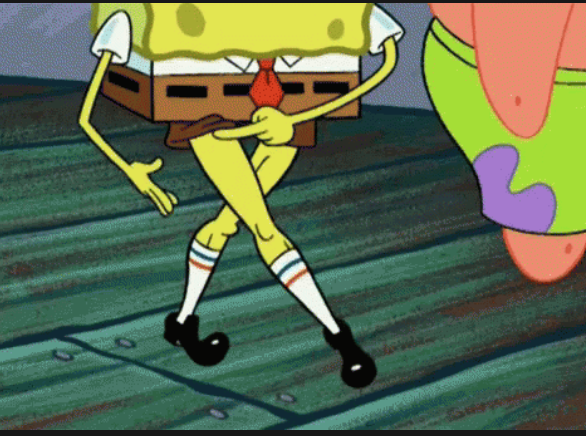
lab 9.
it doesnt stop.i enjoy the pain.it doesnt stop.i enjoy the pain.it doesnt stop.i enjoy the pain.it doesnt stop.i enjoy the pain.it doesnt stop.i enjoy the pain.it doesnt stop.it doesnt stop.i enjoy the pain.it doesnt stop.i enjoy the pain.it doesnt stop.i enjoy the pain.it doesnt stop.i enjoy the pain.it doesnt stop.i enjoy the pain.
-
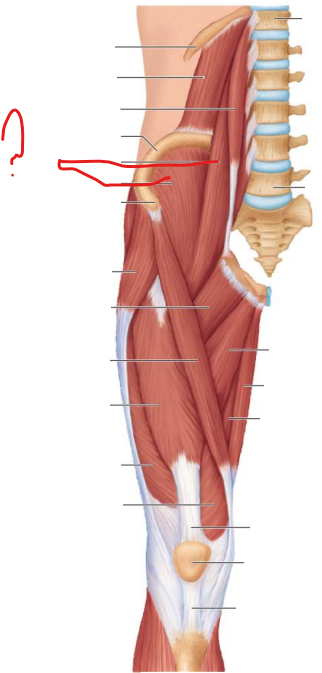
origin:
ala of sacrum
iliac fossa
iliac crest
insertion:
lesser trochanter of femur via iliopsoas tendon
action: prime mover for flexing thigh
-
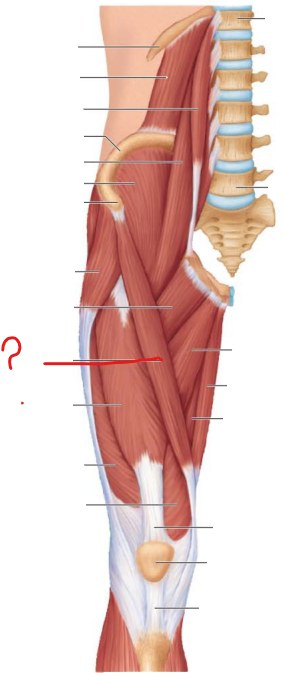
origin: anterior superior iliac spine
insertion: winds around medial aspect of knee and inserts into medial aspect of proximal tibia
action: flexes, abducts, and laterally rotates thigh
-
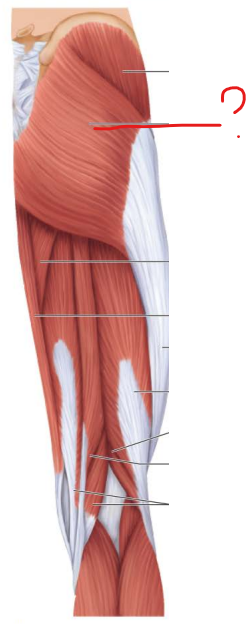
origin:
dorsal ilium
coccyx
sacrum
insertion:
gluteal tuberosity of femur
iliotibial tract
action: major extensor of thigh
-
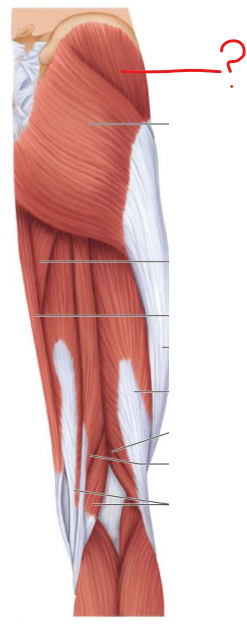
origin: between anterior and posterior gluteal lines on lateral surface of ilium
insertion: by short tendon into lateral aspect of greater trochanter of femur
action: abducts and medially rotates thigh
-
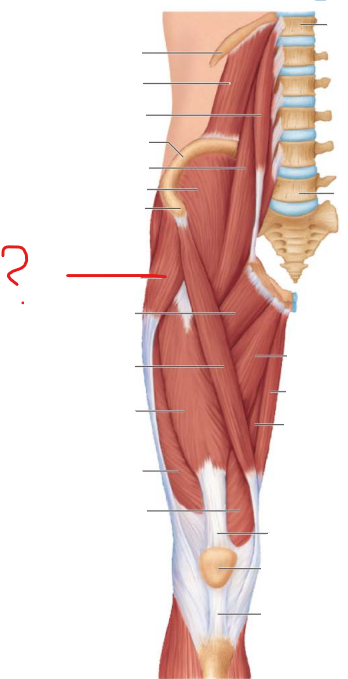
origin:
anterior aspect of iliac crest
anterior superior iliac spine
insertion: iliotibial tract
action: steadies the leg and trunk on thigh by tightening iliotibial tract
-
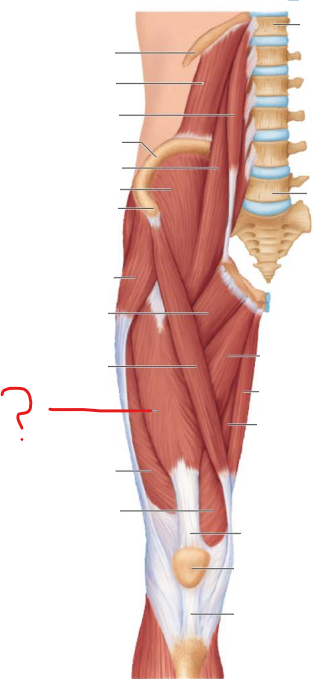
origin: anterior inferior iliac spine
superior margin of acetabulum
insertion: patella and tibial tuberosity via patellar ligament
action: extends leg and flexes thigh at hip
-
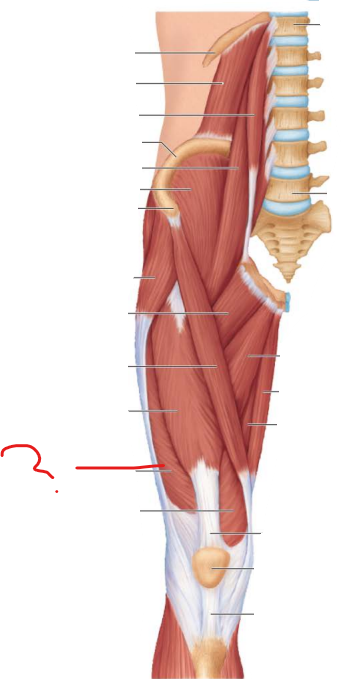
origin:
greater trochanter
intertrochanteric line
linea aspera
insertion:
patella and tibial tuberosity via patellar ligament
action: extends leg and stabilizes knee
-
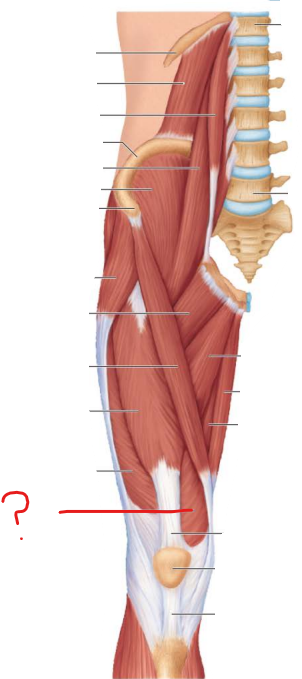
origin:
linea aspera
intertrochanteric and medial supracondylar lines
insertion:
patella and tibial tuberosity via patellar ligament
action: extends leg
-
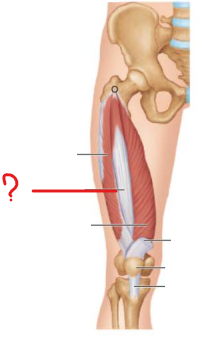
origin: anterior and lateral surfaces of proximal femur shaft
insertion: patella and tibial tuberosity via patellar ligament
action: extends leg
-
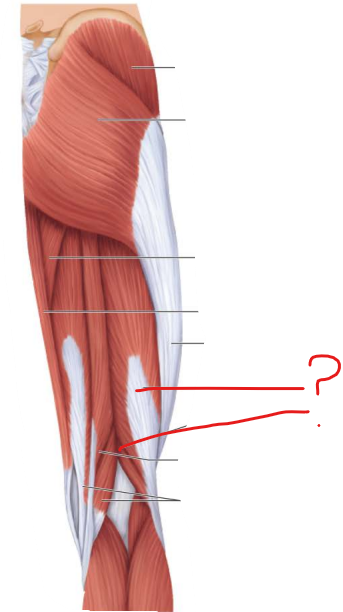
origin:
distal femur (short head)
ischial tuberosity
linea aspera
lateral supracondylar line
insertion:
common tendon into head of fibula
common tendon into lateral condyle of tibia
action: extends thigh and flexes leg
-
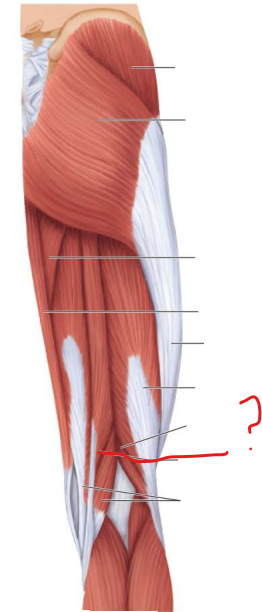
origin: ischial tuberosity in common with long head of biceps femoris
insertion: medial aspect of upper tibial shaft
action: extends thigh and flexes leg
-
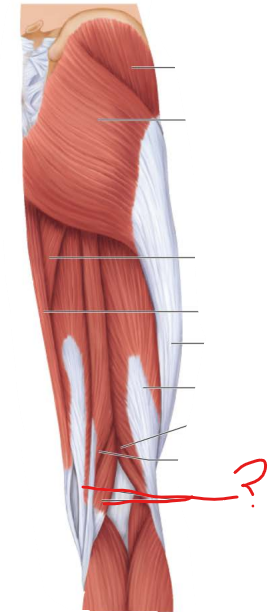
origin: ischial tuberosity
insertion: medial condyle of tibia
lateral condyle of femur
action: extends thigh and flexes leg
-
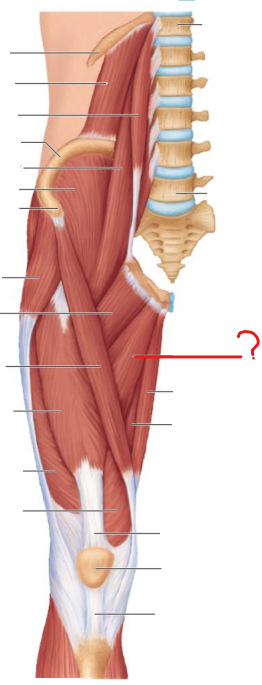
origin: pubis near pubic symphysis
insertion: linea aspera
action: adducts, flexes, and medially rotates thigh
-
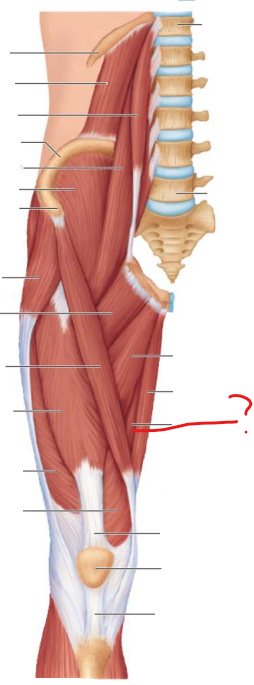
origin: ischial and pubic rami
ischial tuberosity
insertion:
linea aspera
adductor tubercle of femur
action: anterior part adducts and medially rotates and flexes thigh
posterior part is a synergist of hamstrings in thigh extension
-
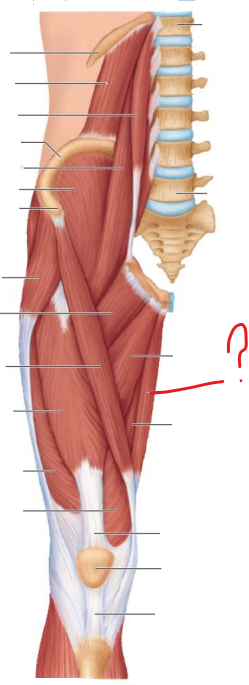
origin: inferior ramus and body of pubis
adjacent ischial ramus
insertion: medial surface of tibia just inferior to its medial condyle
action: adducts thigh, flexes and medially rotates leg
-
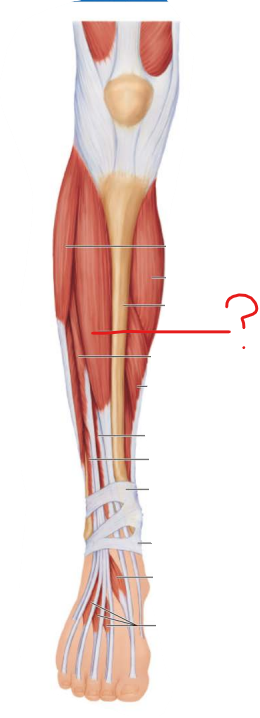
origin:
lateral condyle and upper 2/3 of tibial shaft
interosseous membrane
insertion:
by tendon into interior surface of medial cuneiform and first metatarsal bone
action: prime mover of dorsiflexion
-
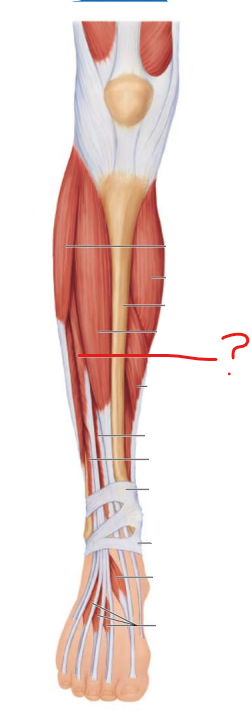
origin:
lateral condyle of tibia
proximal 3/4 of fibula
interosseus membrane
insertion: middle and distal phalanges of second to fifth toes via extensor expansion
action: prime mover of toe extension
-
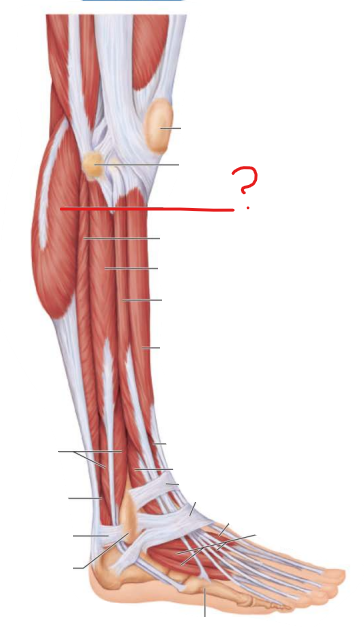
origin: by two heads from medial and lateral condyles of femur
insertion: posterior calcaneus via calcaneal tendon
action: plantar flexes foot
-
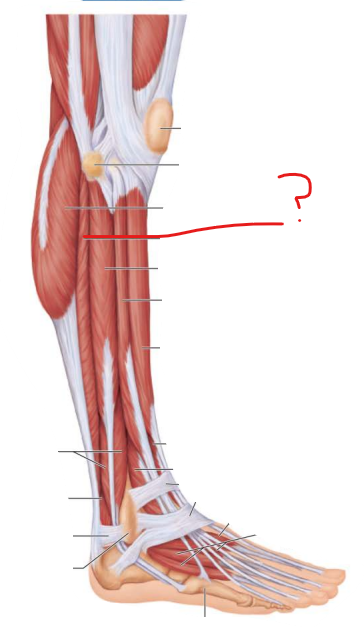
origin:
extensive origin from superior tibia
fibula
interosseus membrane
insertion:
posterior calcaneus via calcaneal tendon
action: plantar flexes foot
-
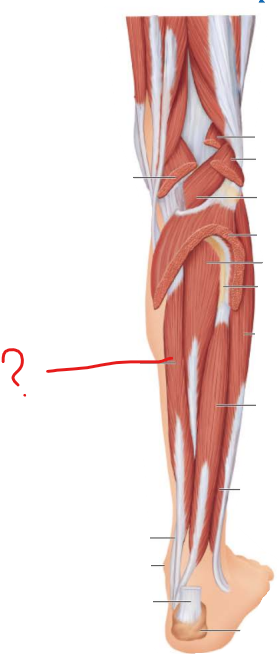
origin: extensive origin on the posterior tibia
insertion: tendon runs behind the medial malleolus and inserts into distal phalanges of second to fifth toes
action: plantar flexes and inverts foot, flexes toes
-
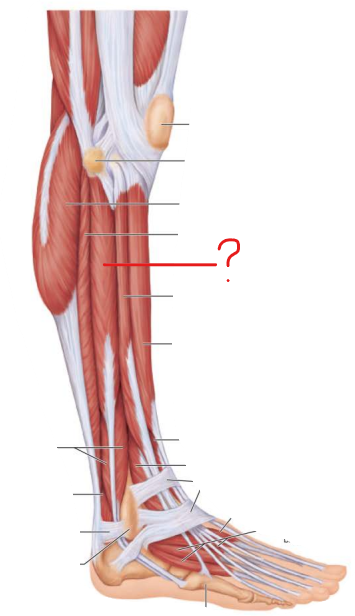
origin: head and upper portion of lateral fibula
insertion: by long tendon that curves under foot to first metatarsal and medial cuneiform
action: plantar flexes and everts foot
-
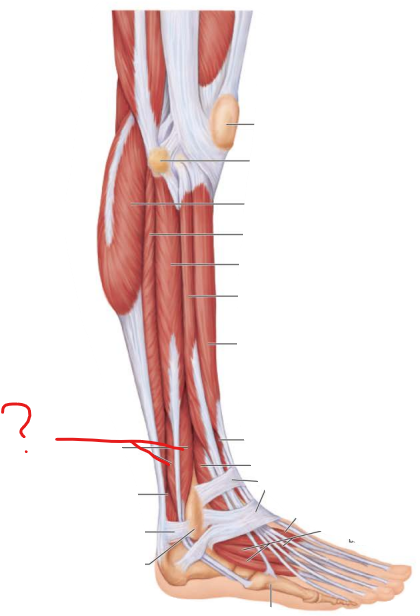
origin: distal fibula shaft
insertion: by tendon running behind lateral malleolus to insert on proximal end of fifth metatarsal
action: plantar flexes and everts foot

